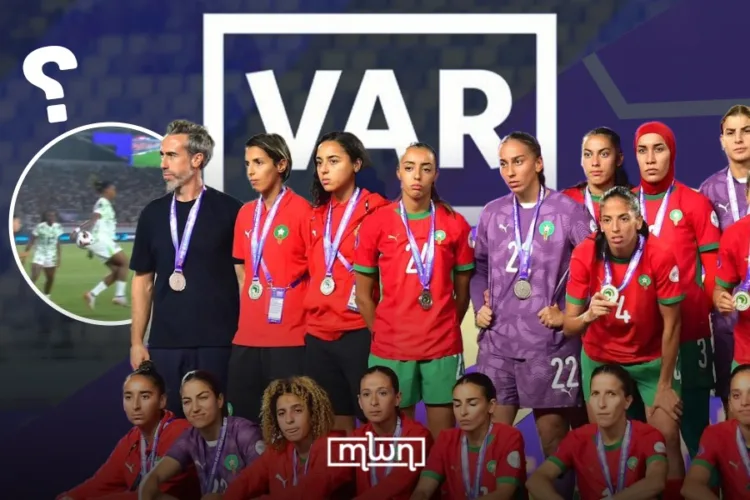
RABAT — What should have been a crowning night for African women’s football turned into a storm of controversy, as Nigeria’s dramatic 3–2 comeback over host nation Morocco in the 2024 Women’s Africa Cup of Nations (WAFCON) final was overshadowed by a string of contentious refereeing decisions — particularly involving the Video Assistant Referee (VAR).
The turning point came in the 63rd minute, when Moroccan defender Nouhaila Benzina was judged to have handled the ball inside the box. Despite protests that the ball merely glanced her torso, Namibian referee Antsino Twanyanyukwa pointed to the spot after a VAR review. Nigeria’s Esther Okoronkwo converted the penalty to pull one goal back, igniting fury among the home crowd.
Minutes later, it was Morocco’s turn to appeal for justice. A visible handball by Nigeria’s Oluwatosin Demehin led to a penalty being awarded — only to be overturned after another extended VAR consultation.
“It was shocking,” said Moroccan football analyst Sami El-Hamidi. “If that’s not a handball, then what is? The technology should clarify the game, not cloud it.”
Social media erupted with criticism of the officiating. “Today, the Moroccan women’s national team has faced the greatest injustice,” said Monsif, a popular Moroccan football commentator on X (formerly Twitter). One fan wrote, “African football deserves better. VAR should not be used to protect bad refereeing.”
The officiating crew, composed entirely of women — including referee Twanyanyukwa and VAR lead Salima Mukansanga of Rwanda — had been praised before the match for representing CAF’s push to empower female officials. But Sunday night’s events shifted the narrative.
“We celebrate progress, but not at the cost of fairness,” said sports columnist Leïla Zahidi. “This final deserved better officiating. Morocco was robbed.”
Morocco, who had surged to a 2–0 lead with first-half goals from Ghizlane Chebbak and Sanaa Mssoudy, appeared in control. But Nigeria clawed back after halftime. Following the disputed penalty, they equalized through Deborah Ijamilusi and sealed victory in the 88th minute with a strike from substitute Jennifer Echegini, assisted by Okoronkwo’s pinpoint free-kick.
While Nigeria’s Super Falcons celebrated a record-extending title dubbed “Mission X,” the home side was left in disbelief.
“VAR was supposed to protect the spirit of football,” said former Moroccan international Naïma Bennis. “Instead, it destroyed ours tonight.”
The controversy has reignited longstanding concerns about the Confederation of African Football’s (CAF) credibility. Allegations of corruption, poor transparency, and questionable decision-making have haunted the organization for years — and Sunday’s final, many argue, fits a broader pattern.
“CAF has a trust problem,” said governance watchdog Amine Derraz. “When officiating consistently favors one side in key matches, people start asking if it’s incompetence — or something worse.”
With pressure mounting, voices across the continent are urging CAF to institute structural reforms: from appointing neutral referees for key matches, to publishing transparent VAR protocols and ensuring external oversight.
“If nothing changes,” said Zahidi, “no amount of technology will save African football from itself.”
As Morocco recovers from the heartbreak and Nigeria celebrates yet another triumph, one truth remains: the 2024 WAFCON final will be remembered not just for the football, but for the fury that followed.





